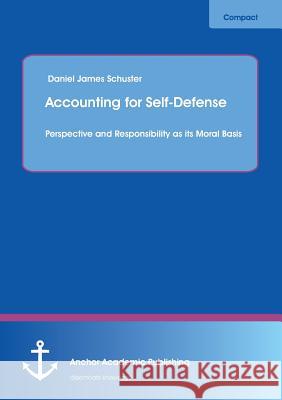Accounting for Self-Defense: Perspective and Responsibility as Its Moral Basis » książka
Accounting for Self-Defense: Perspective and Responsibility as Its Moral Basis
ISBN-13: 9783954892730 / Angielski / Miękka / 2014 / 60 str.
It is commonly believed that people in certain circumstances possess a right to self-defense. This exists not only on an individual but also on a collective level, historically known as Just War Theory. During the 20th century this theory has undergone a revival in academic circles, mainly due to the invention of nuclear weaponry, the cold war and America's military involvement in Vietnam. Yet, many of the assumptions of the Just War Theory have been challenged and undergone a revision, and a separate school of thought has emerged: the "revisionist" just war theorists. A core feature of their philosophy is viewing war as the continuation of different forms of conflict, such as self-defense. The moral justification for war needs to, therefore, stem from the same source of morality. This book is about the philosophical debate on the moral basis for self-defense. The accounts of two main protagonists in the field, Judith Jarvis Thomson and Jeff McMahan, are outlined. The former takes a rights-based approach to self-defense, the latter a responsibility-based one. Subsequently the author develops his own account, which is a partial synthesis between the former two, albeit remaining a responsibility-based one at its core. He introduces the conceptual differentiation between perspectives into the fundamental level of justification, which gives rise to a separate, supplementary criterion. The author also addresses the points of criticism raised against the former two accounts and shows how his own is better equipped in responding to the challenges raised against McMahan's responsibility-based account.











